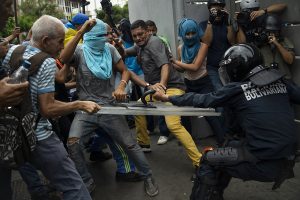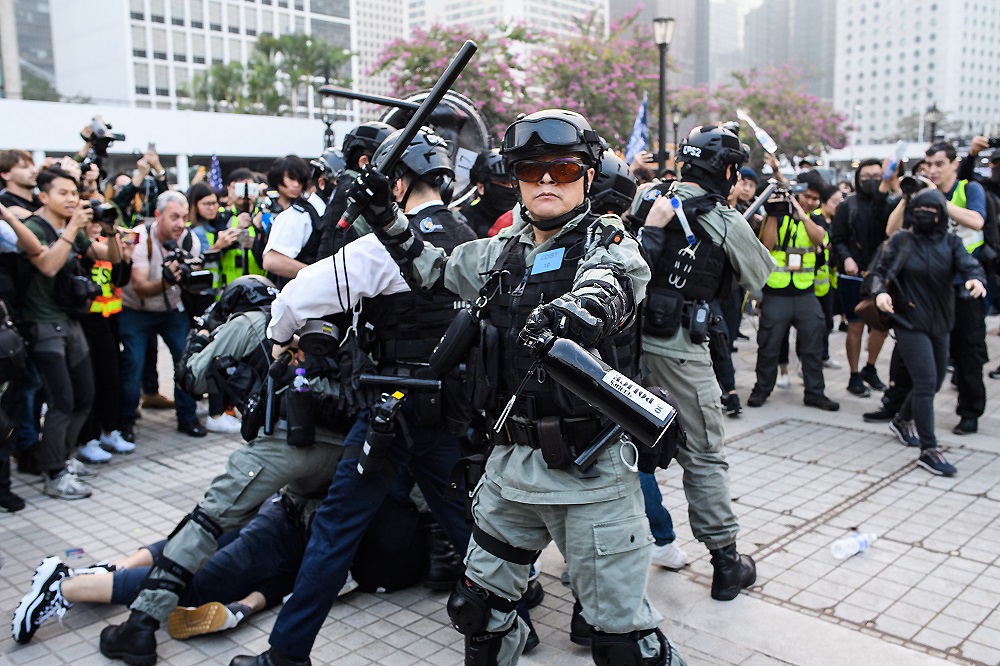The United States is condemning authoritarian governments around the world for suppressing people with severe human rights “violations and abuses” to control any activities that might threaten their power.
“Experience teaches that government officials who oppress, abuse, and tolerate the denial of the human rights of their own people are also responsible for creating social environments that are ripe for both economic and humanitarian crises, and that encourage corruption, violent conflict, and terrorism,” said U.S. Secretary of State Mike Pompeo in a March 11 statement unveiling the 2019 Country Reports on Human Rights Practices.
Iran
On Iran, the U.S. report highlighted the widespread protests that began last November after a fuel price increase.
The Tehran government “blocked almost all international and local internet connections for most of a week, and security forces used lethal force to end the protests, killing approximately 1,500 persons and detaining 8,600, according to international media reports. There was no indication government entities were pursuing independent or impartial investigations into protester deaths,” said the State Department.

The U.S. report detailed a grim picture in Iran, citing significant human rights abuses including executions for crimes not meeting the international legal standard and without fair trials of individuals.
The State Department also said Iranian government officials materially contributed to human rights abuses in Syria, Iraq, and Yemen, through military support for Syrian President Bashar al-Assad and pro-Iran militia groups.
China
On China, the State Department’s human rights report focused on Chinese Communist Party officials’ intensified campaign of mass detention of members of Muslim minority groups in the Xinjiang Uighur Autonomous Region (Xinjiang).
“In China, the Chinese Communist Party uses high-tech surveillance systems to monitor potential dissidents. It’s imprisoning religious minorities in internment camps, part of its historic antipathy to religious believers,” Pompeo told reporters at the press briefing.
The State Department report says Chinese authorities reportedly have “arbitrarily detained more than one million Uighurs, ethnic Kazakhs, Kyrgyz, and other Muslims in extrajudicial internment camps designed to erase religious and ethnic identities.”
The report said official repression of the freedoms of speech, religion, movement, association and assembly of predominantly Uighurs and other ethnic and religious minorities in Xinjiang, and Tibetans in the Tibet Autonomous Region (TAR), was more severe than in other areas of the country.
Washington also notes that in China, human rights issues include arbitrary or unlawful killings, forced disappearances, and arbitrary detention by the government; harsh and life-threatening prison and detention conditions; physical attacks on and criminal prosecution of journalists, lawyers, writers, bloggers, dissidents, petitioners, and others as well as their family members; and the forcible return of asylum-seekers to North Korea.
Venezuela
On Venezuela, the report cited restrictions on political participation and the stifling of free expression.
“For more than a decade, political power has been concentrated in a single party with an authoritarian executive exercising significant control over the judicial, citizens’ power, and electoral branches of government,” said the State Department, citing that the reelection of Nicolás Maduro as Venezuela’s president is “neither free nor fair” and deeply flawed.
The State Department report also pointed to issues including unlawful or arbitrary killings, including extrajudicial killings by security forces of the Maduro regime; forced disappearances; torture by security forces; arbitrary detention by security forces; harsh and life-threatening prison conditions; political prisoners; unlawful interference with privacy; and lack of judicial independence.
The U.S. report said the Maduro regime restricts freedom of expression and of the press by routinely blocking signals and interfering with the operations of, or shutting down, privately owned television, radio and other media outlets.









